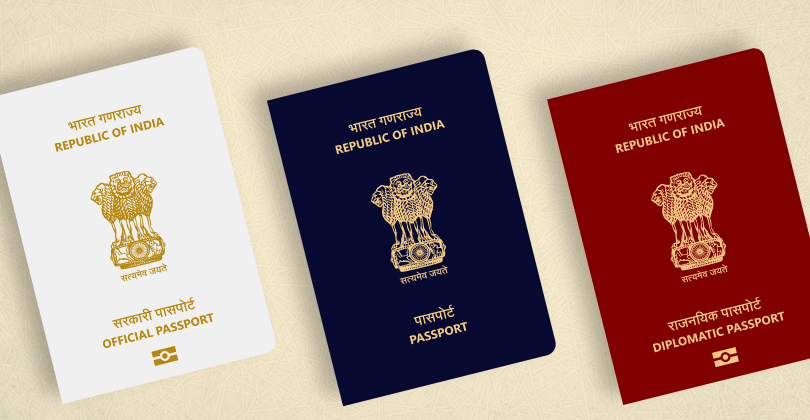The process of issuing passports to minors in India is governed by the Passport Act of 1967 and related regulations, which aim to balance a child’s right to mobility with the responsibility of safeguarding their welfare. Understanding these laws requires a comprehensive analysis of parental rights, state intervention, and the rights of minors as autonomous individuals. This article explores the legal frameworks in India that determine when a minor can obtain a passport, the role of parental consent, and the circumstances under which a passport might be granted or denied.
Legal Framework in India
In India, the Ministry of External Affairs oversees the issuance of passports through the Passport Seva system. The Passport Act of 1967 serves as the primary legal framework governing the issuance of passports, including those for minors. Additionally, the Juvenile Justice (Care and Protection of Children) Act, 2015, may play a role in specific cases involving minors.
Requirements for Minor’s Passport Application
In India, minors (defined as individuals under the age of 18) are required to follow specific protocols to obtain a passport. These protocols typically include parental consent, though exceptions exist. Below is an overview of the key factors influencing a minor’s right to a passport in India:
1. Parental Consent Requirements
The issuance of a passport to a minor in India generally requires the consent of both parents or legal guardians. This requirement is designed to:
- Protect minors from potential abduction or exploitation.
- Ensure that decisions about a child’s travel are made jointly by those with legal responsibility.
For instance, during the passport application process, parents are required to provide their details, signatures, and proof of their relationship with the child. If one parent is unable to provide consent, a self-declaration affidavit (Annexure C or Annexure G) may be required, depending on the circumstances.
2. Circumstances Where Consent Can Be Overridden
There are specific scenarios where a minor may be granted a passport in India without the consent of both parents:
- Single Parent or Sole Custody: If a single parent has sole custody of the child, they can apply for the passport by providing relevant legal documentation, such as a court order or a death certificate of the other parent.
- Parental Absence or Unavailability: If one parent is deceased, missing, or otherwise unreachable, the other parent can proceed with the application by submitting the necessary proof, such as an Annexure D affidavit.
- Court Orders: A court may override objections from one parent if it determines that issuing a passport is in the best interest of the child. For example, in cases involving family reunification or educational opportunities abroad, courts prioritize the welfare of the child.
- Legal Guardianship: In cases where the child is under the care of a legal guardian, the guardian may apply for the passport by providing proof of guardianship.
3. State Intervention and Protection Measures
The Indian government may deny or delay issuing a passport to a minor if there are concerns about the child’s welfare or potential risks, such as:
- Abduction Risks: If there is evidence suggesting that the passport could facilitate parental child abduction, authorities may intervene to prevent its issuance.
- Custody Disputes: Ongoing custody disputes between parents may lead to a temporary hold on passport issuance until the matter is resolved in court.
Factors Supporting a Minor’s Right to a Passport
While parental consent is often required, there are compelling arguments and legal provisions supporting a minor’s right to obtain a passport in certain circumstances:
1. Educational and Developmental Opportunities
Travel can provide significant educational and developmental benefits, such as participation in international exchange programs or scholarships. Courts may consider these factors when deciding whether to override parental objections.
2. Family Reunification
In cases where a minor’s travel is essential for reuniting with family members abroad, the child’s right to family life may take precedence over parental objections. Such cases often involve families separated due to migration.
3. Medical Needs
If a minor requires medical treatment unavailable in India, courts or government agencies may expedite the passport application process to facilitate access to care.
4. Humanitarian Considerations
In exceptional circumstances, such as escaping conflict zones or natural disasters, minors may be granted passports without adhering to standard parental consent requirements.
Case Studies in India
To illustrate how these principles apply in practice, consider the following examples:
- Single Mother Case: A single mother applied for her child’s passport to facilitate travel for an educational program abroad. The father, who was absent, did not provide consent. The passport authority accepted an affidavit and proof of sole custody, granting the passport.
- Custody Dispute: A father objected to the issuance of a passport for his child, citing ongoing custody litigation. The court intervened, ruling in favor of the mother, who demonstrated that the travel was essential for the child’s well-being.
Practical Guidance for Parents and Guardians in India
To ensure a smooth passport application process for minors, parents and guardians should:
- Understand Legal Requirements: Familiarize themselves with the Passport Act of 1967 and other relevant regulations.
- Secure Necessary Documentation: Prepare documents such as the child’s birth certificate, custody orders, or affidavits (Annexures) as required.
- Resolve Disputes Amicably: Attempt to resolve disagreements through mediation before resorting to legal action.
- Consult Legal Experts: Seek advice from family law attorneys if disputes or unique circumstances arise.
Conclusion
The laws governing a minor’s right to a passport in India reflect a careful balance between parental authority, the child’s best interests, and societal obligations to protect vulnerable individuals. While parental consent is a cornerstone of the application process, exceptions exist to ensure that minors can access opportunities, reunite with family, or escape perilous situations. By understanding these laws and their practical applications, families and legal practitioners can navigate the complexities of minor passport applications effectively.
Contributed By Karan Bhalla (Legal Intern)

